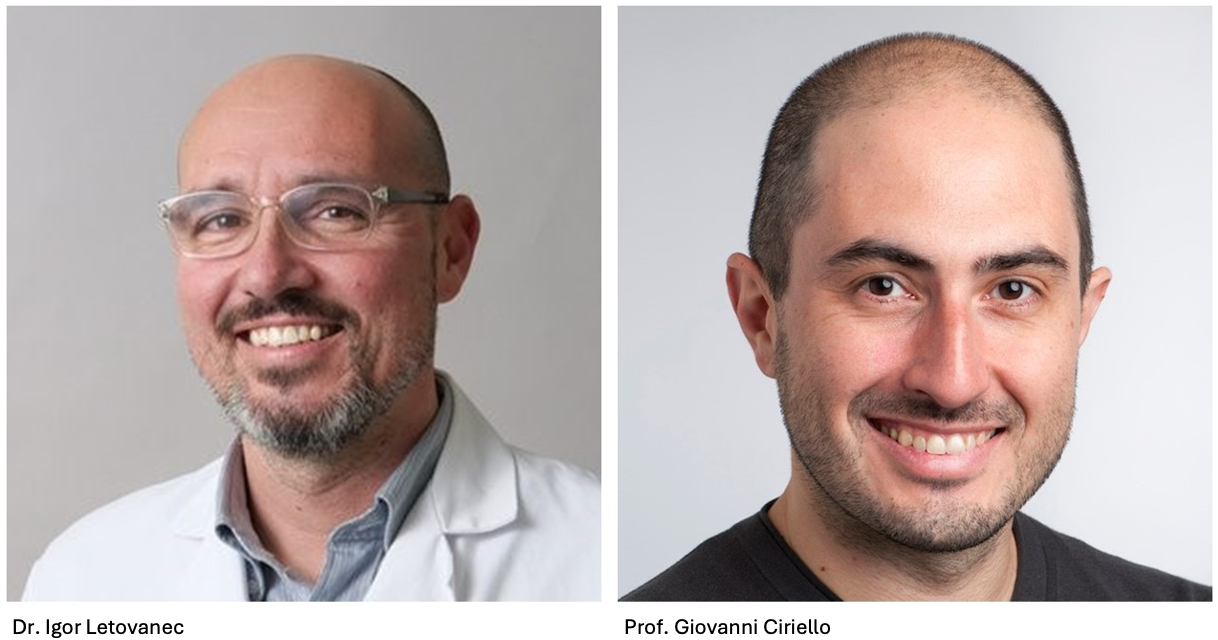Lung cancer (Adenocarcinoma) – Prof. Giovanni Ciriello (UNIL) and Dr. Igor Letovanec (CHUV)
Understanding disease progression in lung cancer

Lung adenocarcinoma (LUAD) represents 40% of all lung cancers, which makes it one of the most common lung cancers. Previous studies have used histopathology (the study of changes in tissues caused by disease) to diagnose and study diseased lung tissue at the microscopic level. This classic approach identified changes in cell morphology and growth patterns that accompany disease progression. The overarching aim of the current collaboration is to use new techniques to predict more accurately how the cancer will progress and whether or not it will react to treatment.
Disease progression is driven by the plasticity of cell identity and a coincident reshaping of the tumor environment, such that reprogramming is maintained. Based on histopathological analysis, there are four recurrent tumor progression patterns that reflect both tumor aggressivity and patient survival prognosis. The milestones are readily identified and provide a lot of information on disease progression and tumor heterogeneity, both within one patient and among multiple patients:

Whereas it is clinically relevant to identify the stages of tumor progression by histopathology, the molecular drivers of the transitions from one state to the next are also crucial. Towards this end, the team has characterized molecularly the transitions of cancer from lepidic to solid tumors, using a combination of techniques for single cell analysis of cancer cells and their interaction with the tumor microenvironment.
The team has the following aims: first is to detect molecular features of the transitions from lepidic to solid tumors across patients (see figure). Secondly, they will deepen our understanding of how tumor progression can be predicted based on the interaction of cancer cells with the tumor cell environment. The overarching goal of the project is to provide new insights into the role of cancer cell plasticity in disease progression and to explore if this helps predict disease progression in individual patients. Ultimately, the results will pave the way for new practices in clinical diagnostics as well as new approaches to lung cancer therapy.

